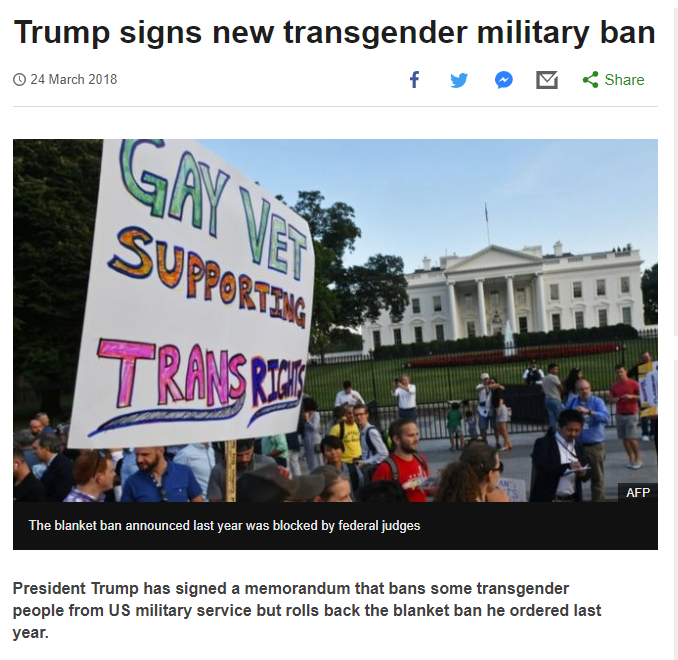So farmers have to either agree that "progressive and liberal" concerns are more important than local agricultural concerns, or get branded a racist or bigot? I suppose that's one way to try winning elections. Seems to be working well so far.
I'm not sure how you misinterpreted my post. I'm saying that rural voters are put off by the party supporting women, blacks, and the LGBT. It's right there in the quote I gave you; a blue dog is pretty much spelling it out for you.
By the way, Democrats don't ignore the white working class.
"President Donald Trump has proposed eliminating funding for economic development programs supporting laid-off coal miners and others in Appalachia, stirring fears in a region that supported him of another letdown on the heels of the coal industry's collapse."
"
The cuts to its funding were recommended to the administration by the Heritage Foundation, a Washington-based think tank. Nick Loris, an energy fellow at the foundation, said the work that ARC and the Economic Development Administration do should be devolved to state and local governments "to encourage transparency and reduce duplicative federal spending."
States have said their budgets are already strapped."
https://www.reuters.com/article/us-usa-trump-budget-appalachia-idUSKBN16N2VF
"It turns out that one of the best ideas for how to rescue the region came from the same people who have been reviled for their role in burying the coal industry.
On February 2, in one of his first acts as Senate majority leader of the 115th Congress, Mitch McConnell ushered through the repeal of the Stream Protection Rule. The Obama-era regulation had taken eight years to write, emerging on the last day of the Obama administration, only to be snuffed out two weeks later. In the so-called War on Coal, this was the first time coal had punched back, drawing cheers from Washington to Appalachia.
"We cannot allow the legacy of the Obama administration to continue damaging our communities." McConnell wrote in a self-congratulatory op-ed in the
Lexington Herald-Leader.
Story Continued Below
The Stream Protection Rule, and "a wave of environmental regulations" like it, according to a spokesperson for the American Public Power Association, have long been the source of Republican anger toward Obama-era energy policy, which conservatives contend is the reason 40,000 coal miners have lost their jobs, 11,000 in Kentucky alone, since 2011. That was the year the EPA announced a stricter air standard that had the effect of forcing coal-fired power plants to shift to natural gas at a time when the price of gas had fallen to historic lows.
"This tragedy in central Appalachia is a direct result of government action," said former governor of Kentucky, Paul Patton, a Democrat, and currently the chancellor of the University of Pikeville in Pike County, which has lost 80 percent of its coal jobs over the past five years. "I can tell you that we're paying the price for it."
But since that much-ballyhooed vote in early February, this is how many new coal jobs have been created in Appalachia: Zero
. And there are no signs there are any coming anytime soon: Tyler White, president of the Kentucky Coal Association, couldn't say how many jobs he thought the repeal of the rule would create, "but I can tell you that it definitely will help stop the bleeding."
Even if every one of Obama's environmental regulations—the Mercury and Air Toxics Standards; the Cross State Air Pollution Rule; the Coal Ash Rule; the Effluent Limitations Guidelines for wastewater discharge, and Section 316(b) of the Clean Water Act —were all struck down tomorrow, the effect on jobs in Appalachia would still be negligible. That's because global demand for coal is slowing, and coal from Wyoming costs a fraction of the coal from Appalachia. Even without the Stream Protection Rule, the Appalachian economy still needs to be remade.
It turns out that one of the best ideas for how to rescue the region came from the same people who have been reviled for their role in burying the coal industry.
ADVERTISING
As part of the 2016 budget, the Obama White House created something called the POWER Plus plan specifically to help Appalachian communities that were getting left behind because of the rapidly changing energy market. The acronym stands for Partnerships for Opportunity and Workforce and Economic Revitalization, and it proposed a suite of projects including to convert $1 billion from the Abandoned Mine Lands reserve—a pot of money that had been growing since the Carter administration—funding for projects to clean up abandoned mine lands, mostly underground, that are linked to local economic development strategies
. For Kentucky alone, that would mean $20 million a year for five years. The money would likely have gone to promote other businesses sectors like manufacturing and tourism and to retrain miners for new jobs like writing computer code.
This potential windfall was met with disinterest, if not skepticism, in the Republican-controlled Congress."
https://www.politico.com/magazine/s...ministration-idea-to-save-coal-country-214885
It's like you have it all backwards.

